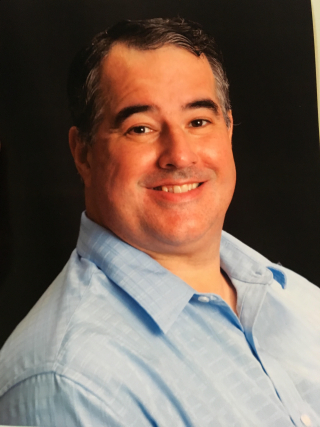The Government Benefits Team at Victoria Collier’s firm prepares, files, and follows up on all VA and Medicaid applications. Though I can say that the majority of our applications are processed from submission to approval in a fairly straightforward manner, that is not always the case. As an introduction to the type of work that our Government Benefits Team does, I want to tell you about a challenging VA case that one might say we recently resolved successfully. Names and personal information have been omitted to protect privacy.
Our client is a widowed Army veteran who served during the Korean War. He had moved to an assisted living facility in September 2010 due to numerous medical conditions, including dementia, diabetes and coronary artery disease, when his family consulted the firm later that same year. The fully developed claim for the Department of Veterans Affairs (VA) Improved Pension with Aid & Attendance was filed in May 2012, although we had already locked in an effective date of October 2011 by filing an informal claim (now known as an Intent to File). Among the veteran’s assets was a commercial property that was co-owned with four other non-related individuals. In the claim, we stated to the VA that this property should not be considered a countable asset to the veteran because it was not readily or easily convertible into cash, as it had several co-owners and had been for sale for over four years with no interest. Shortly afterwards – in VA terms, three months later – the VA requested further information regarding investments, income and expenses, to which the firm replied within the 30 days stipulated. The claim was denied less than two weeks later for failure to provide information requested. That was September 24, 2012 – four months and 17 days after the submission of the fully developed claim. Though slow to approve, the VA is quick to deny.
 After this, correspondence between the firm and the VA continued back and forth for over three years. The VA continued to insist that just because the commercial property had not sold did not mean it could be deemed to have a $0 value. We continued to argue that pursuant to federal regulations (38 CFR §3.275 (d)), a factor to be considered when determining net worth is whether an asset can be readily converted into cash at no substantial sacrifice. Thus, in this case, the property had been listed on the market for over four years with no signs of interested buyers and was owned by five different individuals. Even if the veteran wanted to dispose of his proportionate share, he had to have the agreement of the four other owners. Effectively, the veteran did not have access to the value of this property in order to consume it for his living and care expenses. During this period, we had to enlist the assistance of Georgia Senator Johnny Isakson twice (2013 and 2014) to elicit information from the VA, and we appealed and appealed – filing two separate Notices of Disagreement – to which the VA responded by issuing two further denials in 2013 and 2014.
After this, correspondence between the firm and the VA continued back and forth for over three years. The VA continued to insist that just because the commercial property had not sold did not mean it could be deemed to have a $0 value. We continued to argue that pursuant to federal regulations (38 CFR §3.275 (d)), a factor to be considered when determining net worth is whether an asset can be readily converted into cash at no substantial sacrifice. Thus, in this case, the property had been listed on the market for over four years with no signs of interested buyers and was owned by five different individuals. Even if the veteran wanted to dispose of his proportionate share, he had to have the agreement of the four other owners. Effectively, the veteran did not have access to the value of this property in order to consume it for his living and care expenses. During this period, we had to enlist the assistance of Georgia Senator Johnny Isakson twice (2013 and 2014) to elicit information from the VA, and we appealed and appealed – filing two separate Notices of Disagreement – to which the VA responded by issuing two further denials in 2013 and 2014.
Finally, a VA form 9 Appeal to the Board of Veterans’ Appeals (an administrative appellate level within the VA) was filed in September 2014. At this stage, processing takes much longer – usually three to four years – before you can expect a hearing to be scheduled; thus, we prepared for a long wait. By October 2015, it was clear that our veteran could not wait that long. His health continued to decline, his medical expenses had increased, and since it was now three years, five months, and 27 days since the formal claim was filed, we filed a motion for advancement of the case on the docket in order to expedite the appeal based on his advanced age, serious illnesses and financial hardship. Before drafting this request, we reviewed the case one more time and made some calculations based on the veteran’s net worth in 2011, including his one-fifth share of the commercial property that the VA was so insistent on counting as part of his net worth. We ran what is called a net worth calculation with age analysis and found that the veteran, despite having net worth of over $158,000 in 2011 with the inclusion of the commercial property, still did not have sufficient net worth given his assets, medical expenses and life expectancy. These calculations and conclusions, along with our request to expedite, were received by the Board of Veterans Appeals on November 3, 2015. The board overturned the denial and awarded full benefits. The VA letter awarding the maximum monthly pension benefit retroactive to October 2011 was dated February 2, 2016 – a full three years, eight months and 26 days after submission of the fully developed claim.
The good news is that the veteran, who, started receiving the maximum monthly benefit in March 2016 and is expecting a lump sum deposit of over $90,000. The bad news is that, because of the veteran’s diagnosis of dementia, the VA proposed a finding of incompetency and is not going to release the $90,000 until a fiduciary has been appointed to manage his VA benefit. If the veteran dies before receiving this lump sum, chances are that most of the $90,000 benefit will not be paid to his estate.
There is no one in the family, such as a surviving spouse or a disabled child, who can assume the claim, and the only other means of claiming accrued benefits would be if someone personally paid expenses related to the veteran’s last illness and burial. Furthermore, that someone would have to spend at least the amount owed ($90,000+) in such expenses to recoup the full amount due to the veteran. Not only is it unlikely that the veteran will have more than $90,000 in last illness and burial expenses, but even if the expenses were generated, the family could not afford to pay these. The family would have to be satisfied with reimbursement of these expenses, but nothing more.
Meanwhile, we will continue to consider this VA case as a victory; however only time will tell if the benefit that the veteran waited almost four years to be awarded will ultimately be paid out.
By Sabrina A. Scott, Senior Paralegal, The Elder & Disability Law Firm of Victoria L. Collier, PC and Director of VA Services for Lawyers With Purpose.
Victoria L. Collier, Veteran of the United States Air Force, 1989-1995 and United States Army Reserves, 2001-2004. Victoria is a Certified Elder Law Attorney through the National Elder Law Foundation; Author of “47 Secret Veterans Benefits for Seniors”; Author of “Paying for Long Term Care: Financial Help for Wartime Veterans: The VA Aid & Attendance Benefit”; Founder and CEO of The Elder & Disability Law Firm of Victoria L. Collier, PC; Co-Founder of Lawyers with Purpose; and Co-Founder of Veterans Advocate Group of America.










